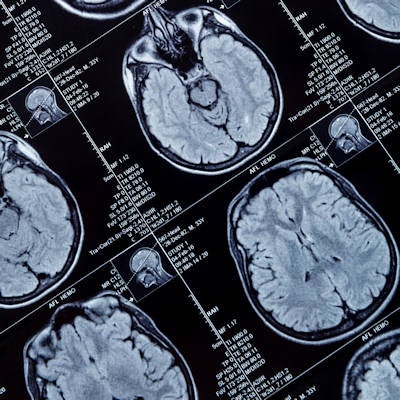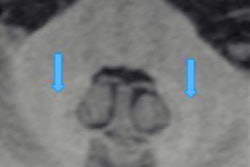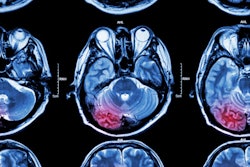
Brain MRI shows that gadolinium-based contrast clears from patients' glymphatic systems more after sleep than after wakeful periods, according to a study published on 22 June in Radiology.
The study results could shed light on how sleep helps "clean" the brain of metabolic waste through the glymphatic system -- which could have ramifications for better understanding neurological diseases such as Alzheimer's, wrote a team led by Dr. Sanghyup Lee of Seoul National University Hospital.
"Further studies ... are warranted to determine whether this noninvasive quantitative glymphatic MRI technique can facilitate the early diagnosis, assessment of disease severity, and treatment response monitoring in various neurogenerative diseases," the group wrote.
Impairment of the glymphatic system is associated with conditions such as Alzheimer's disease, traumatic brain injury, and normal-pressure hydrocephalus, as well as understanding how this system clears metabolites like tau protein, beta amyloid, and lactate is key, Lee and colleagues noted. The group conducted a study to assess any connection between how the glymphatic system works and sleep and wakefulness states.
The study included 25 participants who underwent two MRI exam cycles, one during the day and one at night; the researchers acquired T1 maps at baseline (before contrast), and at half-hour, one hour, one-and-a-half hour, two hour, and 12-hour time points after gadolinium-based contrast administration.
Sleep helped clean the brain of contrast, the group found.
"Clearance of a gadolinium-based contrast agent was greater after sleep compared with daytime wakefulness," the authors wrote.
The findings show promise for assessing neurological disease, according to an accompanying editorial written by Dr. Yoshimi Anzai and Dr. Satoshi Minoshima, PhD, both of the University of Utah in Salt Lake City.
"Noninvasive repeatable imaging methods to measure brain waste clearance (via the glymphatic system) allow for a new way to investigate neurodegenerative diseases," Anzai and Satoshi wrote.



















